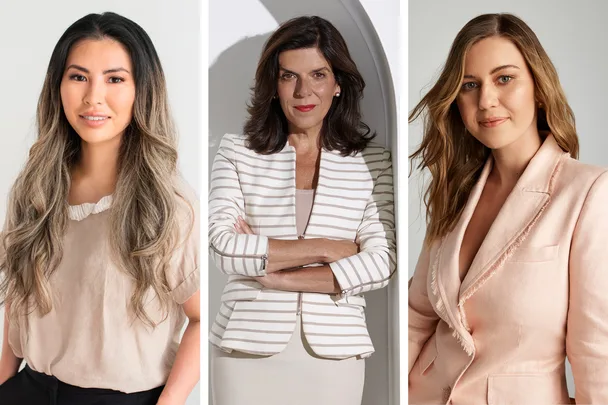Last year was a turning point for Australia as the #MeToo movement infiltrated federal politics, highlighting the ongoing issues of sexism and sexual harassment in the workplace. Despite calls for serious action, little has been done.
One in three parliamentary staffers said they had been sexually harassed. More than half experienced at least one incident of bullying, sexual harassment or actual or attempted sexual assault. Shameful? Yes. Shocking? No, at least not to anyone who’s been paying attention in the past few years.
So when the Respect@Work report was released in early 2020, expectations were high. Described as “revolutionary”, it made 55 recommendations covering everything from a more robust legal and regulatory framework to a more holistic support system for survivors. Most importantly, the report called for a “positive duty” on employers to prevent sexual harassment from happening in the first place.
Despite this, the government have passed just eight of the 12 recommendations that require legislation, most notably not committing to the “positive duty” on employers to prevent sexual harassment from happening. Isn’t this what women had risen up, spoken out and fought for?
Refusing to give up the fight, MC has joined forces with seven high-profile women to champion change and put an end to workplace assault and harassment.
Julia Banks
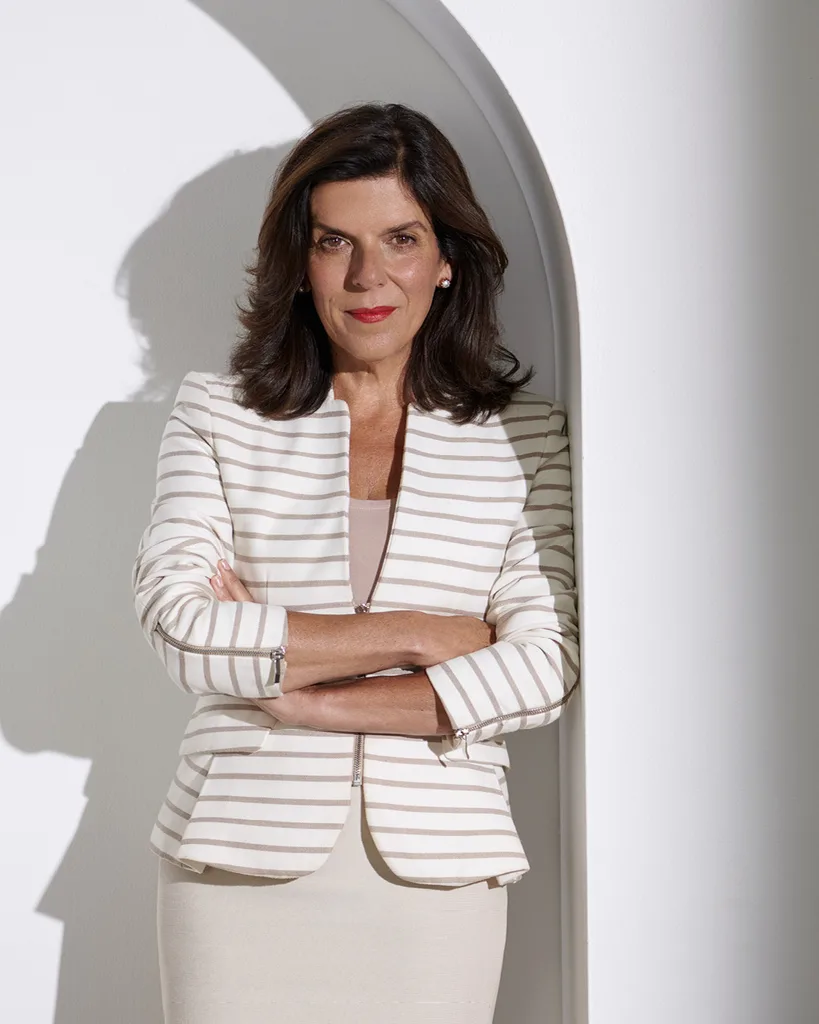
When Julia Banks resigned as a Liberal MP in 2018, she delivered a clear message about the party’s treatment of women. But it wasn’t until she published her book, Power Play, last year that the full scale of what she endured was revealed. “The three months under Scott Morrison’s leadership was the most gut-wrenching period of my career,” recalls Banks, who entered politics in 2015. “In those three months there was a concerted effort to discredit my mental health and my professional reputation. It was an abuse of power, and I knew in my heart that I had to speak out about it,” adds Banks, who was inundated with messages from women identifying with her position.
Banks defines her experience in parliament as workplace coercive control – an issue she believes is endemic across hierarchical organisations or where there is significant power disparity. “Workplace coercive control is pervasive, commonplace and often really hard to identify,” she explains. “Quite often it can happen to someone and they don’t realise it until later on, and that’s what is so insidious about it. It’s very easily covered up and while it generally doesn’t involve physical abuse, it is just as harmful – it goes to women’s livelihoods, their wellbeing and their future.”
Banks defines her experience in parliament as workplace coercive control – an issue she believes is endemic across hierarchical organisations or where there is significant power disparity. “Workplace coercive control is pervasive, commonplace and often really hard to identify,” she explains. “Quite often it can happen to someone and they don’t realise it until later on, and that’s what is so insidious about it. It’s very easily covered up and while it generally doesn’t involve physical abuse, it is just as harmful – it goes to women’s livelihoods, their wellbeing and their future.”
“What Morrison did on the floor of the house to [then-Australia Post CEO] Christine Holgate, saying, ‘She can go,’ he basically used his power to pummel her entire career as a high-profile woman.” (Morrison denies this, and “absolutely rejects” Banks’ characterisation of their conversations.)
Banks is not surprised by the damning findings of the Respect@Work report, but remains hopeful that “forward-thinking organisations will take it on and make the change themselves… This is our moment.”
Christine Holgate
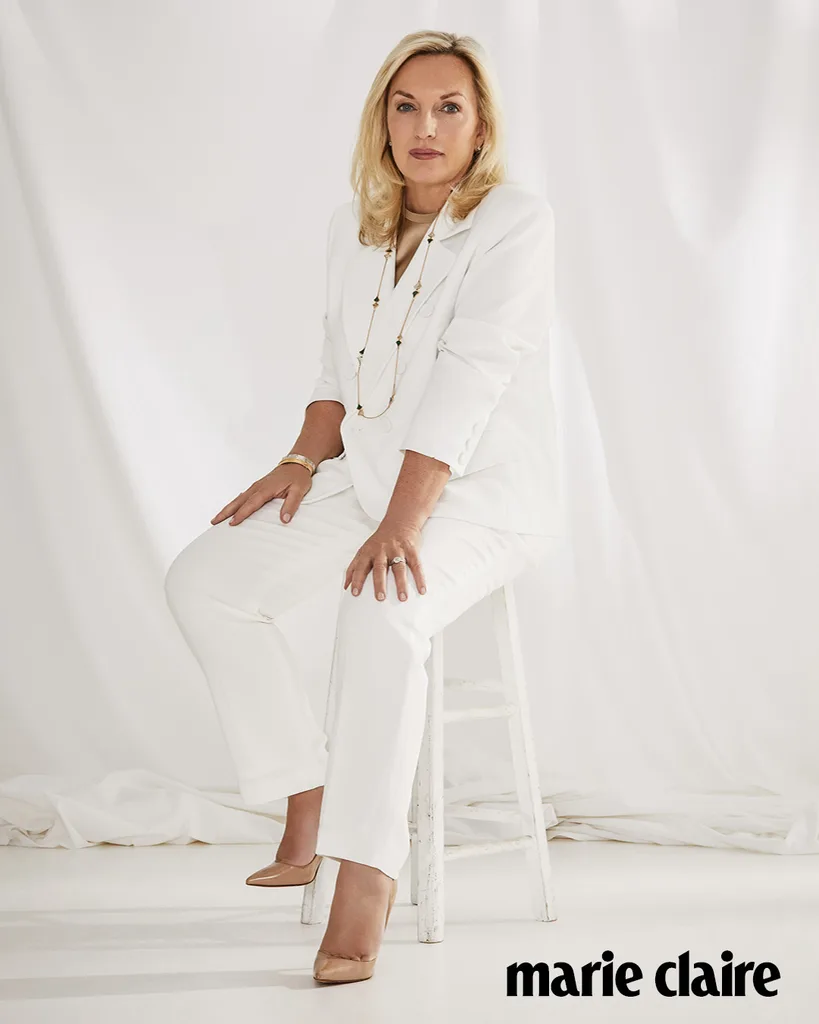
Last year, a post-graduate student wrote to Christine Holgate and asked her to convey some words that were important to her. “I said, safety, respect and equality,” explains the former Australia Post boss.
“Because I was unsafe and grossly disrespected, and through a process I got safer and was supported.” Despite the trauma it caused her, Holgate stands by her decision to speak out against the public vilification she received from Prime Minister Scott Morrison for rewarding four of her executives with Cartier watches. “If you accept bullying you’re giving other people the right to do it again,” she says. “I realised speaking up was not just important for me but for so many who haven’t been able to.”
Holgate was left suicidal by the humiliation she endured, and the subsequent media firestorm. “They depicted me as a prostitute, and my family saw that,” she says. “What happened to me was workplace bullying, and I can’t help but believe that if I were a man it wouldn’t have happened.” (Morrison has denied any wrongdoing.)
Now CEO of Toll Global Express, Holgate is passionate about workplace safety and equality – expressing disbelief that not one female CEO was appointed to the ASX top 200 listed companies in 2020-’21. She believes every recommendation made in the Respect@Work report should be implemented, most notably the obligation of employers to take responsibility for creating safe environments for their workforce. “Many women who suffer harassment, abuse or discrimination can’t afford to take on a lawyer or a large organisation, so they don’t speak up,” she explains. “And that’s incredibly sad. I think everybody has the right to go to work and return home safely.”
Dr Yumiko Kadota
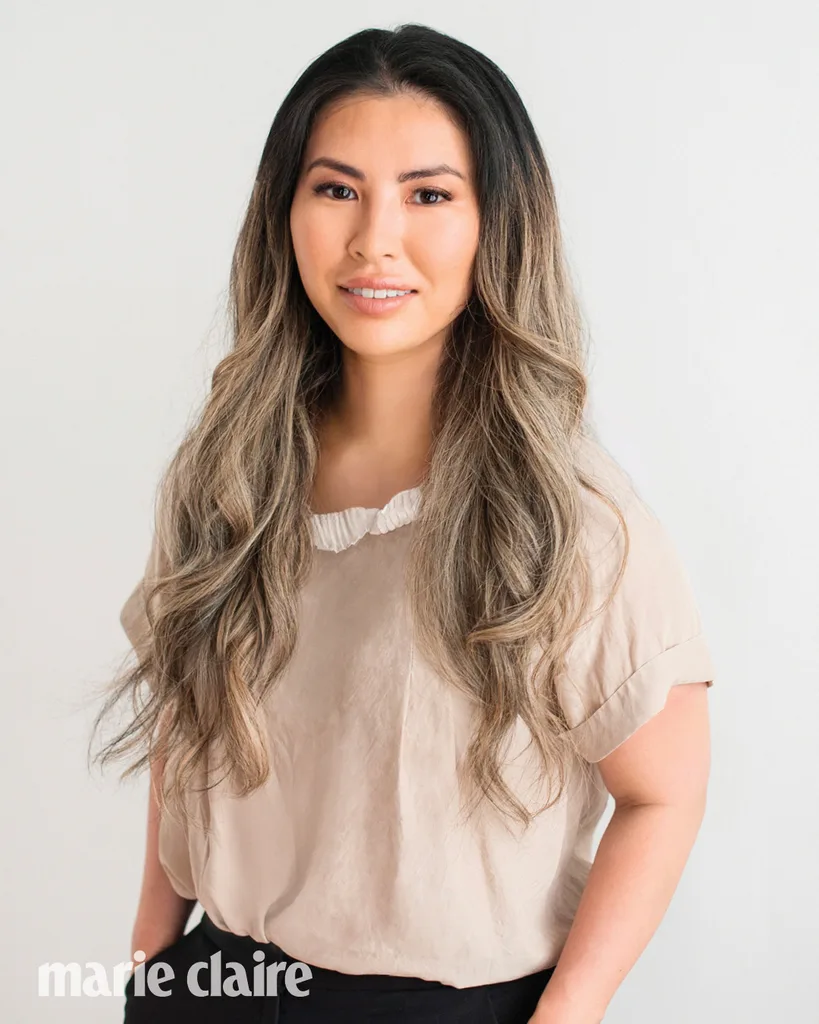
Ask doctor, speaker and author Dr Yumiko Kadota to describe herself and you may be surprised to hear she’d choose the term “emotional female”, a label she wears with pride. A survivor of sexual harassment, sexism and assault in the workplace, Dr Kadota understands the power of words and the way they are used. “I want to reclaim that word, because it’s a strength to be emotional and show empathy,” says Dr Kadota. “The word is often used to gaslight women. When women leave the workplace, it’s never the institution taking responsibility for the systemic factors that drove the women away.”
In 2018, Dr Kadota quit her job as a plastic surgery registrar after suffering workplace bullying, extreme burnout and sexual harassment. “There’s a code of silence [in the medical industry] where we don’t talk about bad things that happen at work. It was affecting so many women around me, and no-one was willing to say anything,” says Dr Kadota, who used to be told by one surgeon to take her clothes off in Japanese so no-one else would understand. “I felt I could be the mouthpiece for those still unable to speak out.”
The importance of placing responsibility on the employer, as highlighted in the Respect@Work report, is something Dr Kadota has experienced first-hand, after she says she was sexually assaulted by a professor. “At the time, the uni said it was up to me to make a complaint. That shouldn’t be left to the [victim], ” says Dr Kadota. “It [should be] the institution’s responsibility to make a formal report mandatory and support that process.”
Brittany Higgins
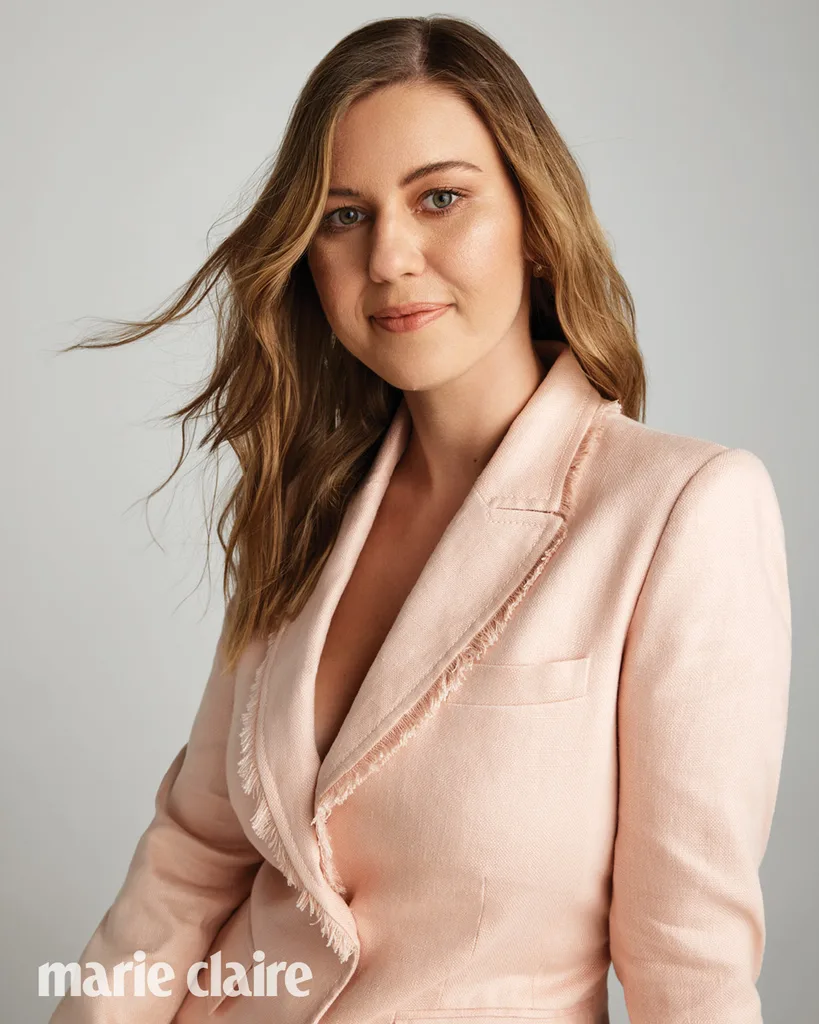
When Brittany Higgins made the brave decision last year to go public with allegations that she was raped by a colleague inside Parliament House, she embarked on a life-changing, trailblazing course that has seen her become the catalyst for change. In addition to being a fundamental part of 2021’s reckoning for women, the inspiring actions of the former Liberal staffer most notably triggered Jenkins’ Set the Standard review into Parliament House – an incredible feat for a 27-year-old. “I remember the blank looks from my superiors in parliament trying to offer me solace by saying, ‘It’s just the way things are,’” Higgins says. “Inherently I think we all knew the status quo was wrong but to see these issues now being taken seriously is incredible.”
While Higgins was “heartbroken but not surprised” by the findings of the review, she is “cautiously optimistic” about the government implementing the recommendations. Most importantly, she is resolute on her commitment to speak truth to power: “Coming forward with your truth is incredibly difficult, but it’s nothing compared with the shame and stigma of silently carrying the weight of your trauma on your own. I encourage women to… call out bad behaviour… you have a generation of Australians ready, willing and able to support you.”
Sarah Hanson-Young
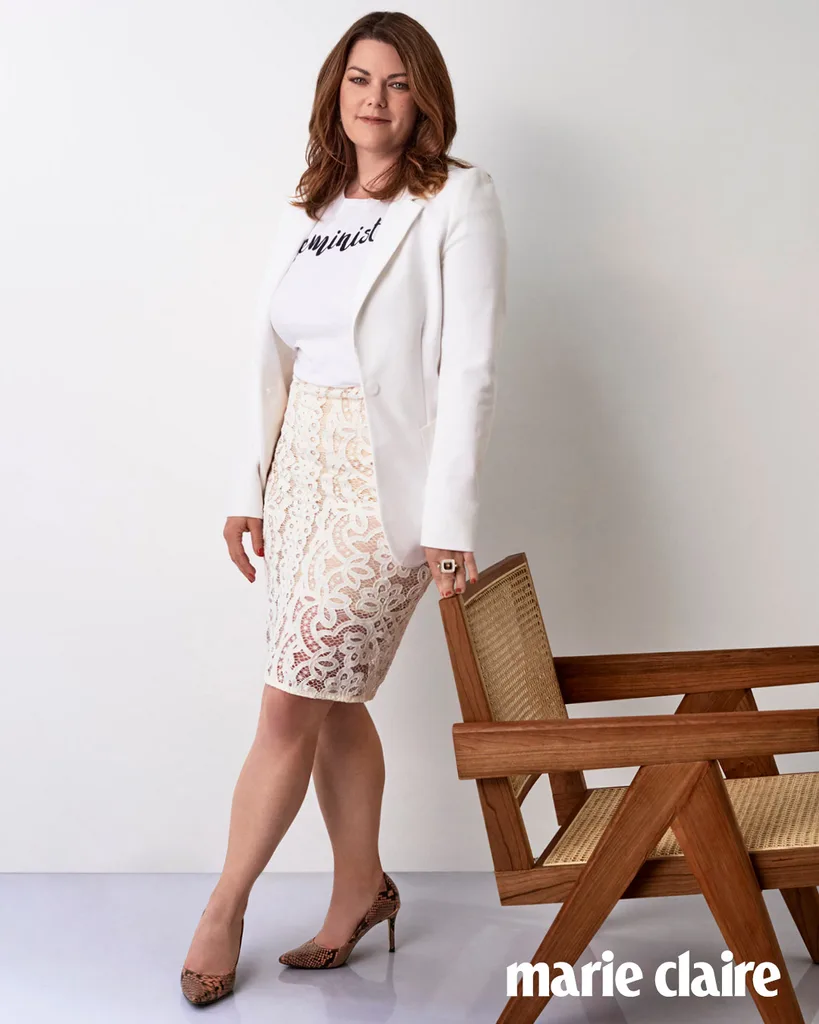
Gender-based bullying and sexism have been ugly, ubiquitous forces during Sarah Hanson- Young’s 14 years in politics, a workplace environment she describes as a “boys’ club where the corridors reek of testosterone”.
In 2018 her tolerance levels expired after then-senator David Leyonhjelm attacked her in the Senate, suggesting she should “stop shagging men”. After he repeated the comments outside parliament, she sued for defamation and was awarded $120,000 in damages – the Federal Court slamming his comments as “crass, offensive and obviously sexist”.
It’s no wonder then that the findings of Jenkins’ Set the Standard report didn’t surprise the Greens senator, but she is confident that spotlighting the situation is a step in the right direction. “We’re having conversations now that we never had a year ago,” she says. “But it’s time to get on with it. How the Morrison government responds to the recommendations will send a crucial message to the nation’s workforce, because parliament should lead the way and set the standard. To turn a blind eye to the report is to turn a blind eye to bullying, harassment and abuse.”
Hanson-Young remains galvanised by her decision to call out the injustice she suffered, knowing it has emboldened countless women around the country. “I spoke up to send a message to every woman and girl who has been told to stay quiet or to not rock the boat in the face of harassment and abuse. They don’t need to suffer in silence. Now is the time to demand equality for women, for our daughters to be safe and respected.”
Kristy Fraser-Kirk

Kristy Fraser-Kirk knows all about speaking truth to power. In 2010, the then-27-year-old junior publicist was at the centre of one of the most high-profile harassment cases in Australian history after she brought a multimillion-dollar lawsuit against retailer David Jones, alleging the company’s then CEO, Mark McInnes, had sexually harassed her.
McInnes denied the claims and the case ultimately settled outside of court, but the personal toll was immense for Fraser-Kirk, who was portrayed as a grasping gold digger by a headline hungry media in a pre- #MeToo landscape. “Back then, the media and general public opinion was far less accepting of women who tried to bring attention to sexual harassment in the workplace,” says Fraser-Kirk, now 39. “It was far easier to scapegoat and vilify the person airing the issues rather than face the issues themselves. I did what I did because what happened to me was wrong. I had … an organisation that turned a blind eye and a culture whereby it was deemed normal for women to remain silent at whatever cost. It was important then and it is still important today, to say out loud that was not OK.”
Fraser-Kirk remains proud of her decision to speak out and is optimistic about the groundswell of change in Australia, but is adamant that more accountability is needed. “We need to get some basics right, starting with holding those accountable in boardroom positions for the culture and benchmarks that they are setting,” she says. “The onus should never be on already-vulnerable people to come forward.”
Julia Szlakowski
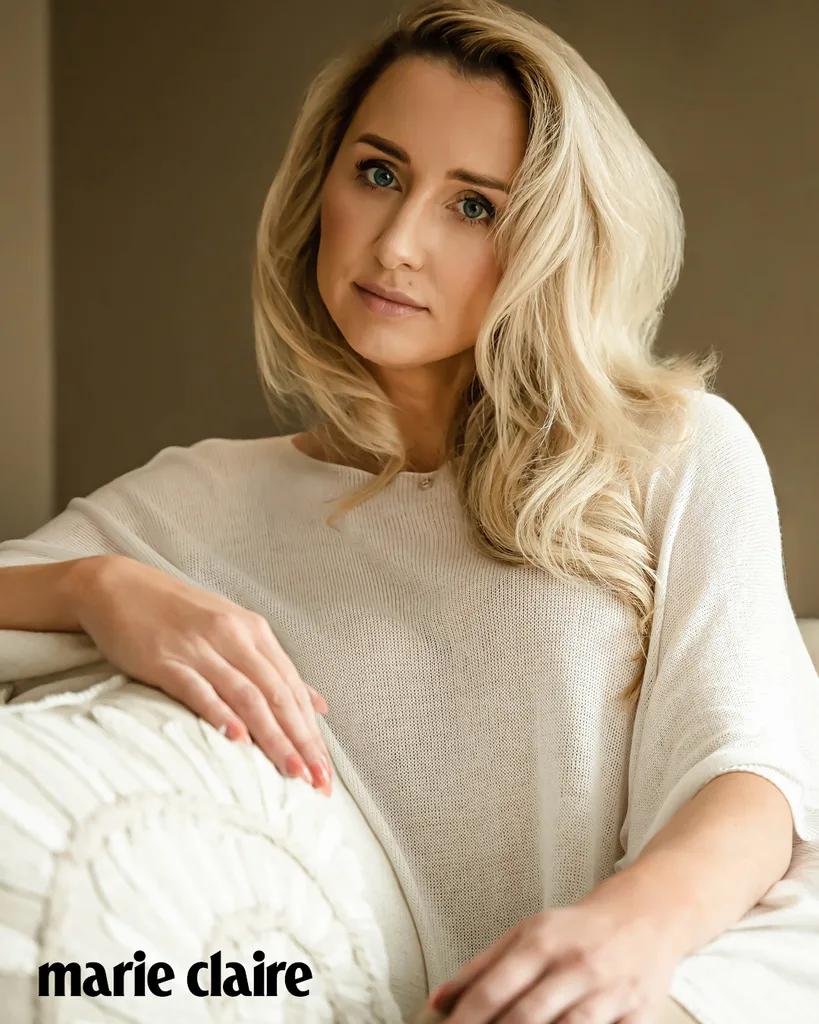
Becoming the face of corporate Australia’s #MeToo moment in 2020 was never part of Julia Szlakowski’s career plan. “The sexual harassment I endured while employed at AMP – along with the subsequent fallout – has had immeasurable consequences on all aspects of my life,” says the former executive.
When her boss, Boe Pahari, subjected her to multiple incidents of sexual harassment in late 2016, Szlakowski made an internal complaint but was “intimidated into silence”. Pahari received a slap on the wrist, and Szlakowski resigned from AMP in 2018. In July 2020, Pahari was promoted to CEO of AMP Capital, his harassment having been deemed a “one-off event”.
Meanwhile, Szlakowski’s story was leaked to the press, devastating both her personal and professional life. She has spent the past few years rebuilding her life and career. “Standing on the right side of history and promoting a women’s movement does not translate to opportunities to continue my once very successful career,” she says. “Yet known harassers generally keep their jobs. My hope is that society fully welcomes back survivors … by hiring them.”
She’s particularly passionate about the issue of non-disclosure agreements. “NDAs are designed to muzzle survivors of sexual harassment, protect perpetrators and help mask the toxic company culture that enabled the harmful behaviour,” she says. “Multiple states in America have now passed legislation allowing survivors to speak up. I hope Australia follows suit.”
Join our campaign
Write to the Prime Minister and your local federal member and urge the government to adopt the full list of recommendations outlined in both the Respect@Work and Set the Standard reports. Make your voice heard.
